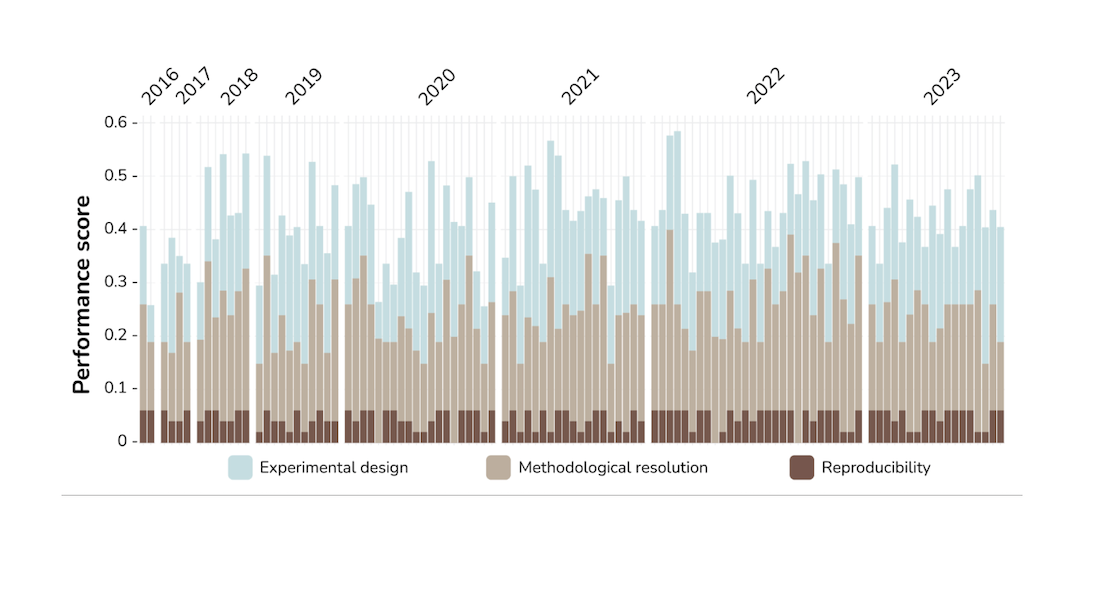Systematic review finds gaps in understanding microbe-driven acclimation and adaptation in wild vertebrates
In a recent preprint titled "Quantitative synthesis of microbe-driven acclimation and adaptation in wild vertebrates," researchers from Center for Evolutionary Hologenomics and University of Exeter conducted a comprehensive systematic review to assess the scientific evidence supporting the role of gut microorganisms in the acclimation and adaptation capacity of wild vertebrate hosts.

The study, which involved the screening of 1974 publications, focused on 109 studies that met strict inclusion criteria, evaluating them based on 10 metrics related to study design, methodology, and reproducibility. Despite the extensive examination, the findings of the quantitative review suggest that published studies have thus far been unable to conclusively determine the contribution of gut microorganisms due to shortcomings in study design and research methods.
A need for experimental approaches
The research team identified a critical need to shift from observational studies to experimental manipulations. They propose that future investigations should measure fitness or related indicators while incorporating updated molecular techniques to analyse microbial functions. This strategic shift is believed to be essential in addressing the limitations observed in the current body of research.
Updated molecular techniques
The preprint underscores the urgent necessity for an evolution in research methodologies. The authors advocate for a transition towards experimental approaches that provide a more nuanced understanding of the intricate relationship between gut microorganisms and the acclimation and adaptation processes in wild vertebrates. By emphasising the importance of refined molecular techniques, the researchers aim to pave the way for more conclusive insights into this complex role of the gut microbiome.
Read the preprint in Research Square here.
Contact:
PhD student Garazi Martin-Bideguren
Associate Professor Antton Alberdi
